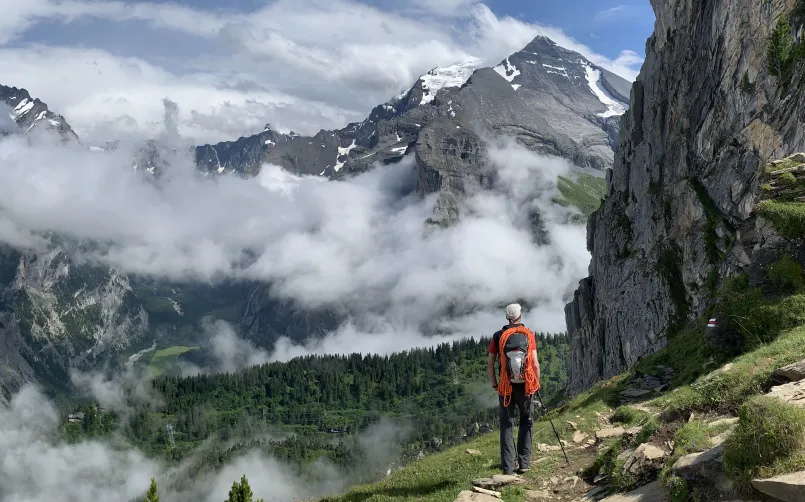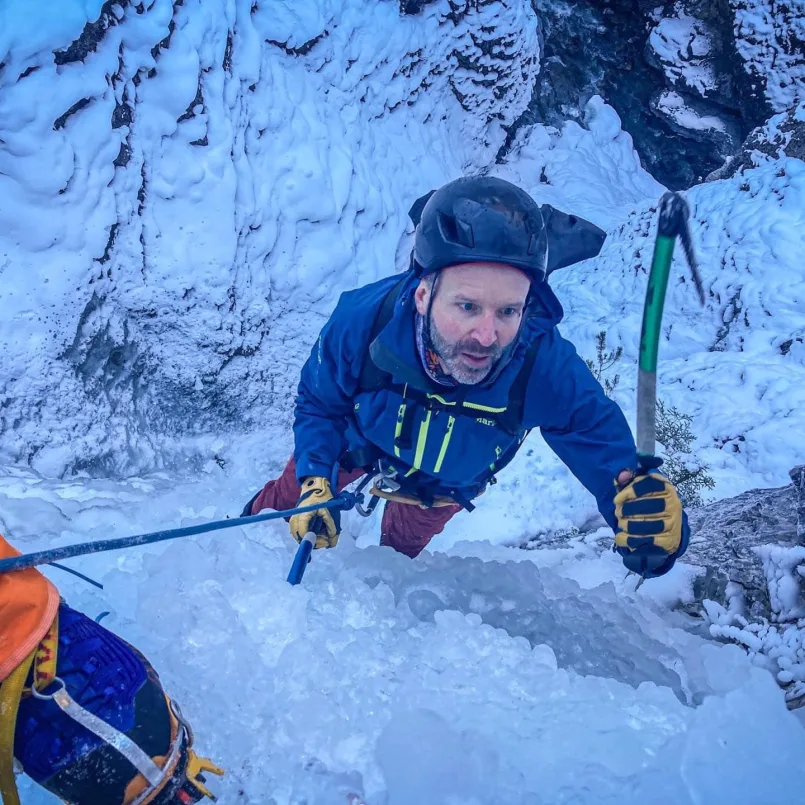When you climb a mountain, you move from belay to belay where you can hook your rope into, preventing you from free fall should you lose your grip. You move up the mountain from one point to the next and eventually you reach the summit. The difficulty in moving from point to point varies depending on things like altitude, steepness, or weather conditions.
While the stakes aren’t life and death, the process for saving a distressed company from insolvency has a lot in common with getting up a mountain. Karsten Lafrenz, a Zurich-based Partner and Managing Director on AlixPartners’ Turnaround and Restructuring team, would know.
A life-long restructuring pro, Karsten prefers distressed situations because of the challenge of developing the restructuring plan and then having to convince the company, its shareholders and lenders to finance the restructuring plan that is common on those engagements.
He joined AlixPartners in 2021 due to the firm’s bigger platform for handling large, distressed company restructurings than his previous firm, which focused more on traditional transformations.
Outside of work, a similar need to find the next challenging thing led him to mountain climbing.

In 2007, Karsten was skiing in Zermatt in the Swiss Alps, looked at the Matterhorn and remembered a friend having done the mountain with no previous climbing experience. He decided then and there to do the same and climbed the Matterhorn the next climbing season.
“I climbed [the Matterhorn] on a day when the weather was quite bad. At the end of the day, out of the ca. 200 people who started the climb, only 10 made the summit.” recalled Karsten. “It really captured me.”
Since that season, he has taken every opportunity to climb, including scaling some of the world’s tallest mountains, including six of the Seven Summits—the highest mountain on each of the seven continents.
High-altitude mountaineering is challenging because climbing up a rock in thin air is physically taxing. A successful climb, Karsten notes, requires one to focus on the simple things, like making sure you stay well-nourished and hydrated despite the effort to get food out in the steep and cold or not losing your gloves when you change your jacket.
“An intense focus sets in on minor details and you must clear your mind of anything else that is not relevant to moving you forward, out of danger, and back into the warmth,” he explains. “That’s very similar to distressed situations … You have hundreds of things to deal with but only a few of them are truly critical, and those are the ones that you prioritize.”

One of Karsten’s most challenging climbs was the Midi-Plan Ridge in the Mont Blanc Massif in Chamonix, France—not a particularly difficult route for experienced climbers according to Karsten—but the windy and icy conditions on the day made clearing the pass especially treacherous, highlighting another important parallel.
“You’re very much dependent on conditions which you cannot control, and you need to make decisions that factor in these kinds of elements. If you think about a distressed company, sometimes liquidation is the right answer, just like sometimes staying in the tent for the day is the right decision,” Karsten explains. “Even if it’s hard for both.”
After conquering Aconcagua, Denali, Elbrus, Everest, Kilimanjaro, and the Mt. Vinson in Antarctica, Karsten is planning to finish the Seven Summits, but as long as parts of New Guinea are not accessible for climbing Puncak Jaya, Karsten is looking for his next challenge: completing all six great north faces of the Alps.
And he hopes that the parallels between his favorite pastime and his profession continue to evolve in lockstep—progressively more challenging climbs in one arena and increasingly complex restructurings in the other.
Or, to paraphrase a common mountain climbing saying, “When you’re on the summit, you see the next challenge from there.”

